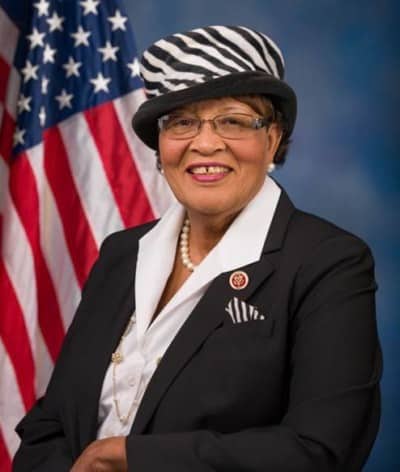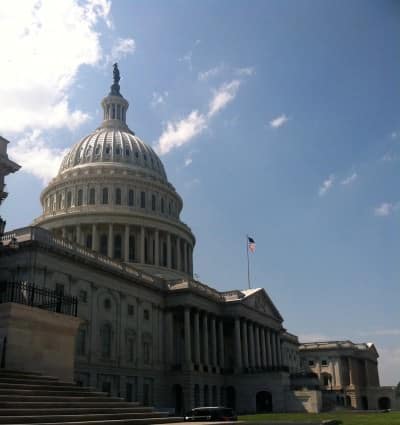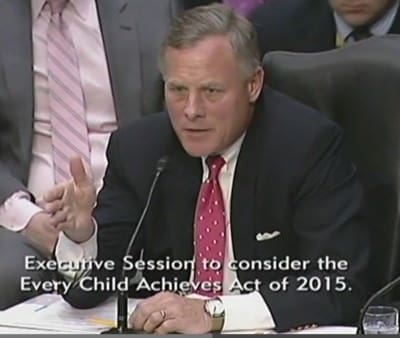The U.S. Congress can seem far removed from North Carolina’s classrooms. Their debates, lawmaking, and partisan bickering doesn’t always seem like it has a real impact on real-life students and teachers.
But who are the people behind the politics? Who’s looking out for North Carolina’s students and educators, and what do they think? I reached out to North Carolina’s three representatives on Congressional education committees — Sen. Richard Burr, Rep. Virginia Foxx, and Rep. Alma Adams — to see if we could talk about their priorities and what they think of public education in North Carolina.

This month, I spoke to Adams, the most junior representative out of the three. The Democrat from Greensboro just took office in November (she was elected in a special election), after serving for 20 years in the North Carolina General Assembly.
She’s already accomplished one of her first goals in Congress: get on the House’s education committee. Adams was an art history professor for 40 years at Bennett College, a private historically-black liberal arts college for women in Greensboro. An alumna from N.C. Agricultural & Technical State University, she has been a supporter for historically black colleges and universities throughout her legislative career, as well as an advocate for increased teacher pay.
“I just think education is extremely important, it is the pathway to the middle class,” she said. “It’s going to be the tool that will help young people have a successful life. I’ve devoted much of my time trying to make sure that that happens for many of our students.”
Right now, Congress has been debating what will be in a rewrite of No Child Left Behind, the 2002 law that led to increased standardized testing and more accountability for schools — particularly on the performance of students who are from low-income families, who are racial minorities, who have limited English proficiency, and who have disabilities.
Earlier this month, the House education committee passed its version of the rewrite, called the Student Success Act. The act, which now moves to the House floor, would give more power to the states to determine how they’ll hold schools accountable and would give parents more choice between public schools and charter or magnet schools. It would allow Title I funds — federal money for low-income children — to follow those students to the public school of their choice, including a charter school.
That part in particular concerns Adams, who voted against the bill. The vast majority of students go to public schools, she said, and diverting Title I money to charter schools or wealthier districts will hurt the poorest students.
“It’s almost like a Robin Hood approach in reverse,” she said.
“It’s almost like a Robin Hood approach in reverse.”
– Rep. Alma Adams
Adams had proposed an amendment to the bill that would have created competitive grants for programs that focus on social studies, economics, foreign language, writing, and the arts in the classroom. The amendment didn’t pass, but Adams said it would have ensured that students receive a well-rounded education.
The arts’ role in education is important to Adams, who holds a Ph.D. in art education and multicultural education from Ohio State University. That background, in part, shaped the first piece of legislation she sponsored.
The bill would direct federal money to programs that train workers to enter science, technology, engineering, and mathematics fields. It would also incorporate fine arts into the technical STEM education.
“More and more employees are looking for folks with some kind of creative advantage to help them solve problems on the job,” she said, noting that this bill would create a pipeline of skilled workers to high-wage jobs.
After 20 years in the state legislature, Adams said she’s excited about the chance to do more at the federal level.
The state needs to invest more in public education, and increase teacher pay to retain strong educators in the state.
“I’m in the position as a member of Congress to, based on things we’ve experienced here in North Carolina, really provide a wealth of information,” she said. “I think my training as a teacher, my experience as a legislator, has really prepared me to talk about these issues, and talk about them not based on what I think, but oftentimes based on what I know because of experience.”
In North Carolina, she thinks the biggest problem facing public education right now is funding, or the lack thereof. The state needs to invest more in public education, and increase teacher pay to retain strong educators in the state, she said.
“It is the great equalizer, education is,” Adams said. “And every child needs that opportunity to have a good education. Some think, and I don’t disagree, that there are attempts [in North Carolina] to dismantle public education. And I’ll be working real hard to make sure that doesn’t happen.”
Recommended reading



